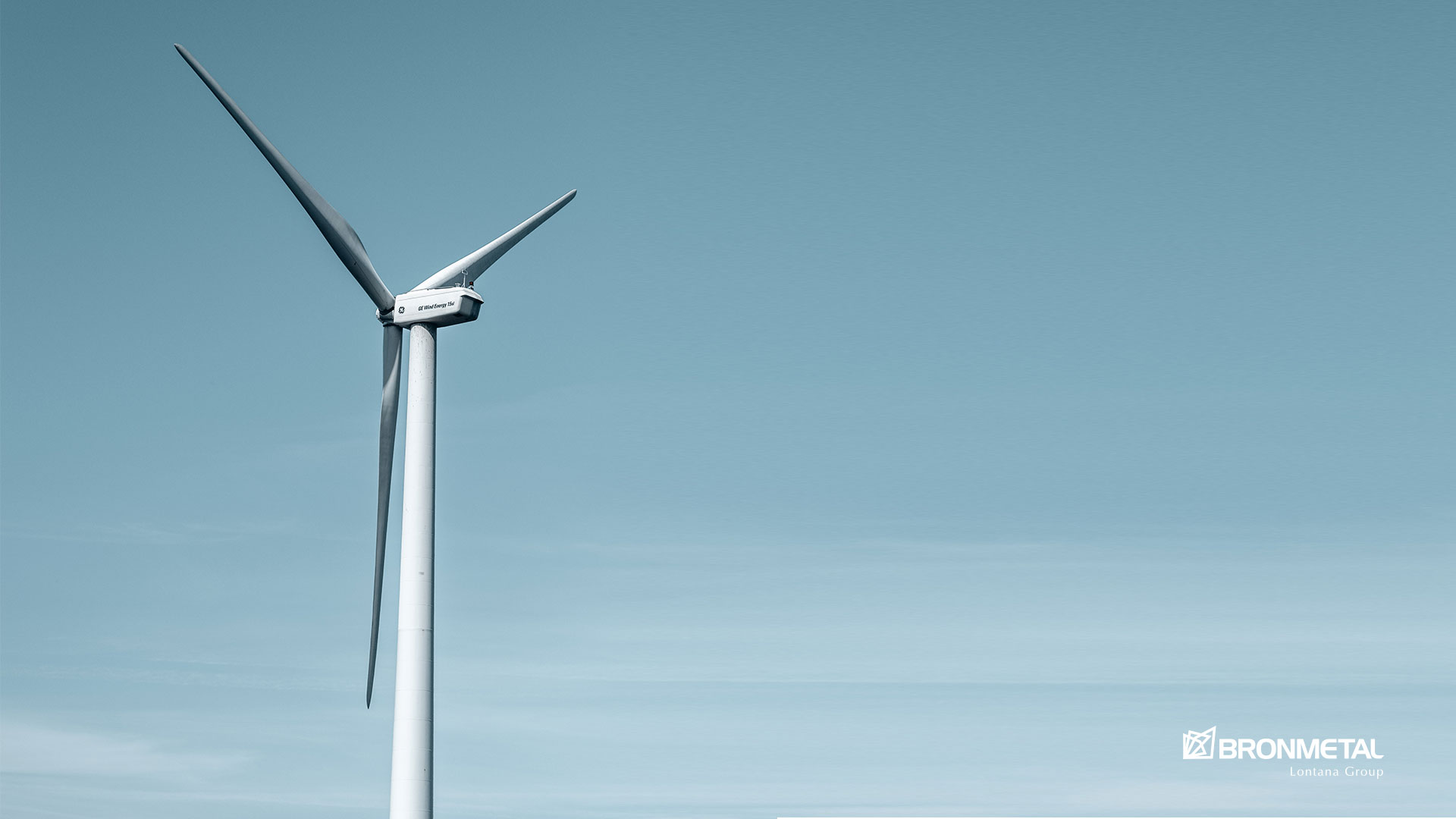The importance of copper and aluminium for the development of renewable energies
- Non-ferrous metals are essential for the future production of renewable energy, it being estimated that demand for them will grow from 50 million tonnes in 2020 to 60 million tonnes in 2040.
- In the specific case of copper, it is forecast that global demand will increase by 34% by 2050, due to the energy transition.
- Bronmetal, a leading company in the sale and manufacture of copper and alloyed materials, offers products designed specifically to respond to the intrinsic needs of the renewable energy sector.
One of the prevailing trends of the 21st century is the increase in awareness of sustainability and respect for the environment. After over a century of historically unprecedented development due to fossil fuels, the consequences of their excessive use are more visible each day, reaching a point of climate alert which may jeopardise the future of the coming generations.
Faced with this quandary, different countries around the world have spent years promoting the use and expansion of renewable energies, making them a key point for future strategies of all administrations and governments at a global level. In the specific case of Spain, in addition to being an essential sector from an environmental perspective, everything indicates that it will also be essential for the economy, being placed as one of the sectors that will mark the growth of the country during the coming decades.
Spain is already one of the 10 countries in the world which invests most in renewable energies, with 25 billion euros. Specifically, photovoltaic energy is the leading form in this growth, the Spanish state having the most hours of sun exposure each year in the European Union.
There is no question that renewable energies are the only alternative for maintaining and improving our lifestyle without even further damaging the environment. Only by making them the main form in our energy mix can a sustainable future be guaranteed for the coming generations.
The importance of non-ferrous metals for the growth of renewables
To undertake this necessary expansion of renewable sources of energy generation, a series of materials is needed, demand for which has grown constantly during the last five years.
Although discussions of the most crucial materials or raw materials for a sustainable world usually focus on those which are scarcer or more difficult to obtain, the truth is that even more common materials are experiencing almost unprecedented demand.
Specifically, non-ferrous metals, which humans have used for years without ever worrying about their scarcity, are essential for the production of renewable energy, it being estimated that demand for them will grow from 50 million tonnes in 2020 to 60 million tonnes in 2040.
By sectors:
- Offshore wind: according to data provided by the IEA, almost 16 tonnes of non-ferrous metals are needed, above all copper and zinc, per MW of capacity installed.
- Onshore wind: in second place with regard to the use of metals, requiring over 10 tonnes of non-ferrous metals per MW of capacity installed.
- Photovoltaic: in third place, with 7 tonnes of non-ferrous metals per MW of capacity installed.
- Nuclear: this form requires the least, with barely 6 tonnes per MW. Only coal and natural gas power plants consume less.
Bronmetal – customised copper and aluminium solutions for renewable energy installations
Due to all of this, it is evident that companies dedicated to the manufacture of non-ferrous material solutions will play a key role when achieving the sustainability objectives set by different governments and administrations. This is the case of Bronmetal, a leading company in the sale and manufacture of copper and alloyed materials, aluminium, brass and bronze.
In a context in which global demand for copper will rise by 34% by 2050 due to the aforementioned energy transition, the company has created customised products for each sector, thereby guaranteeing the supply of their materials, as only by creating products which are specifically adapted to the particular needs of the activity for which they will be implemented can the maximum benefit be obtained from each gram of the material used.
This way, there is a portfolio of products designed specifically for use in the renewable energy sector. These include copper and aluminium cables, and flexible copper braid and strips: Flexicopper. Bronmetal also offers its clients delivery of materials based on plans of copper parts, connections and other customised connection elements.

